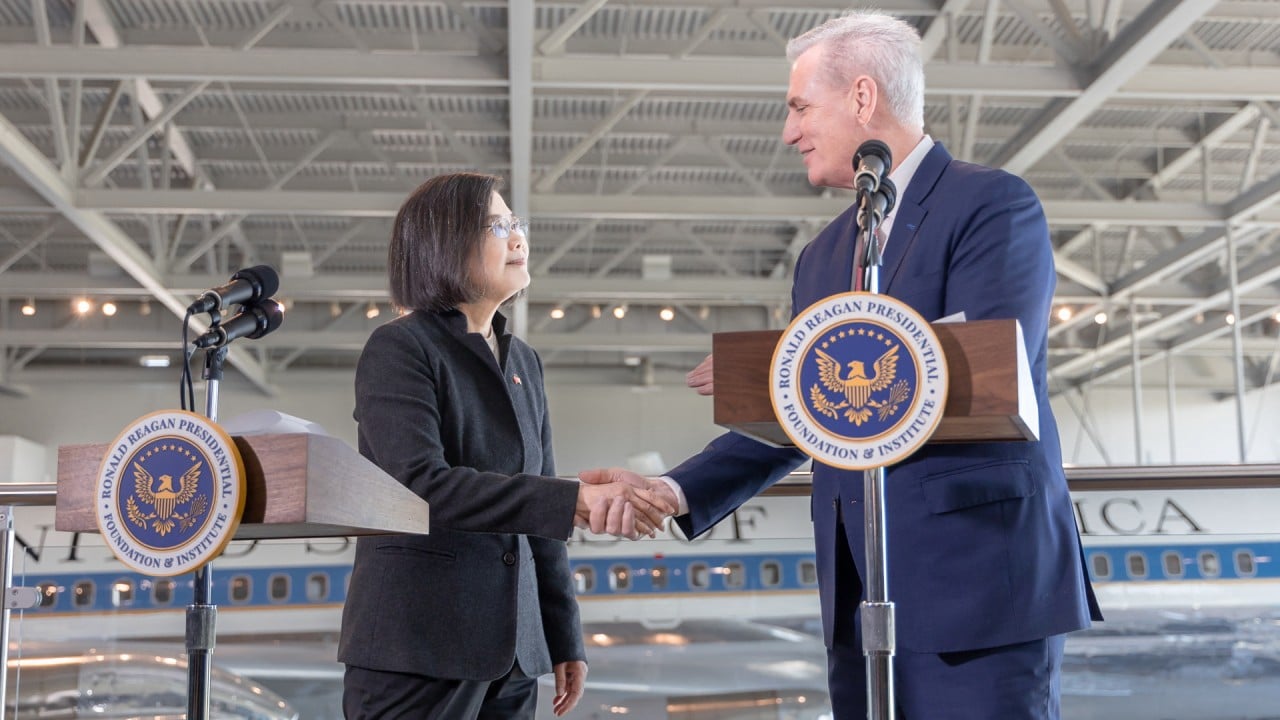
‘Meet China halfway’: Foreign Minister Qin Gang and US envoy Nicholas Burns break ‘spy balloon’ diplomatic ice
- Qin tells Nicholas Burns that the top priority is to stabilise relations between the two countries
- The minister is the highest-ranking Chinese official known to have met a US representative since the balloon sent tensions soaring
Qin told US ambassador to China Nicholas Burns in Beijing on Monday that China and the United States should maintain this bottom line and avoid further incidents.
“The top priority is to stabilise China-US relations, avoid a downward spiral, and prevent accidents between China and the United States. This should be the most basic consensus and a bottom line for countries to keep, especially two major countries,” he said.
“[We] hope the US will reflect deeply, meet China halfway, and push China-US relations out of the predicament and back on track.”
After the meeting, Burns said in a tweet: “We discussed challenges in the US-China relationship and the necessity of stabilising ties and expanding high-level communication.”
Qin is the highest-ranking Chinese official known to have met a US representative since Washington accused Beijing of using a balloon to spy on the United States in February.
The pledge in Bali on the sidelines of the Group of 20 meeting in Bali was an attempt to revive communication largely suspended since former US House speaker Nancy Pelosi visited Taiwan in August.
Now there are signs that this could be happening.
In addition, the Pentagon is reportedly looking to set up a meeting between Defence Secretary Lloyd Austin and his Chinese counterpart Li Shangfu during the Shangri-La Dialogue in Singapore next month.
China has not confirmed any of these prospective talks.
However, the Chinese Ministry of Commerce has confirmed that commerce officials from both countries held talks in Beijing last month. And US Secretary of Commerce Gina Raimondo and Treasury Secretary Janet Yellen have said they intend to visit China soon.
Last month, Pelosi’s successor, Kevin McCarthy, hosted Taiwanese President Tsai Ing-wen in California, prompting Beijing to conduct another round of military drills around the island.
Qin also urged Washington to stop its containment against China.
“[The US] cannot talk about communication on the one hand, and keep suppressing and containing China on the other,” he said, adding the US should correct its perception of China and return to rationality.
The US has been lobbying allies not to sell advanced technology to China. Japan and the Netherlands are set to limit semiconductor exports to China, while South Korea was reportedly told by the US not to fill chip supply shortfalls in China if Beijing banned US company Micron Technology.

 - Kawala Xie.jpg?itok=NogZcyZ-&v=1661304068)

